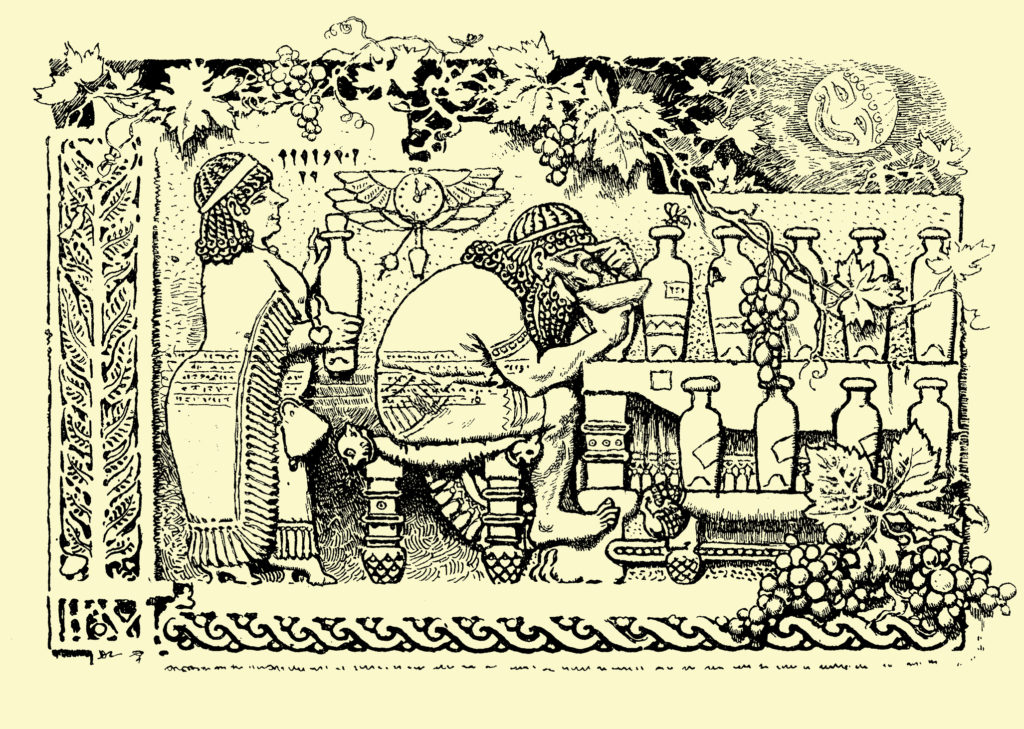Our house has been filled with myth lately.
My six-year-old son Manny is in the thick of Greeking Out, a National Geographic podcast that brings Greek mythology to life.
Dinner conversations now bounce between Heracles, Poseidon, and real-world parallels. Last week, we joked that Elon Musk might actually be Zeus – both four-letter names, hurling lightning bolts from above (or rather, Teslas, rockets, and Starlink satellites), and fathering more children than they seem to keep track of.
(That last parellel came from Manny, still not sure how he knows so much about Elon’s progeny.)
What strikes me is how easily mythology slips into everyday life and how relevant it still feels. These ancient stories stick around for a reason: they carry timeless morals wrapped in unforgettable characters.
The Epic of Gilgamesh
Lately, I’ve found myself thinking about The Epic of Gilgamesh.
It’s not Greek – it predates Homer by over a thousand years – but it might be the most timeless myth of all.
It’s the oldest written story we know of, chiseled into clay tablets over 4,000 years ago. And at its heart is a question we’re still struggling with:
How do we live, knowing we will die?
The First Longevity Seeker
Gilgamesh, a king that was two-thirds god and one-third man, fell into a spiral after losing one of his closest friends Enkidu. He realized: If Enkidu can die… so can I.
Like Jeff Bezos or Peter Thiel – powerful billionaires pouring massive sums of money into anti-aging and life extension – Gilgamesh began his own equally ambitious quest.
He traveled to the ends of the earth seeking the secret to eternal life. He found a plant said to restore youth. And then, just as quickly, he lost it to a serpent.
He returns home. Still mortal. Still aging. But now, deeply changed.
In the final lines of the story, Gilgamesh surveys the towering walls of Uruk – his city, his creation – and finds a different kind of peace. He can’t live forever, but what he builds might.
Sound familiar?
Chasing Immortality
We may not be kings or demigods, but we’re still wrestling with the same problem.
We chase youth. We track our biometrics. We debate the latest fad diets, supplements, and miracle protocols. The biohacking movement is essentially Gilgamesh with a Whoop strap and Huberman Lab playing at 1.5x speed.
And I get it. I’m more or less describing myself.
I’m all for stacking the odds in our favor. But the longer I sit with Gilgamesh’s story, the more I wonder:
Are we focusing on the right kind of immortality?
Healthspan: What We’re Really After
Most people I speak with – even at the Don’t Die Summit – don’t want to live forever. What they want is to feel alive, longer.
They want to:
- stay sharp, strong, and engaged
- be able to play with their grandchildren
- climb mountains in their 70s
- keep their independence and dignity intact
- live with vitality, not just survive
That’s healthspan. That’s what matters. Not how many years you live, but how many of them you’re truly here for.
Prioritizing The Right Investments
In my work – at the intersection of finance and longevity – I’ve seen firsthand how tightly wealth and health are intertwined.
I’ve seen how quickly a health crisis can derail a seemingly solid portfolio.
I’ve seen people with millions in the bank and no energy to enjoy it.
And I’ve seen people of modest means living incredibly rich lives because they’ve prioritized the things that matter.
The Wall of Uruk Is Built Daily
The truth is, longevity isn’t found in a single breakthrough. It’s built the same way Gilgamesh’s walls of Uruk were: brick by brick, day by day.
It looks like:
- Carrying groceries with ease at 80 because you took strength training seriously – year after year.
- Getting restorative sleep because you protected your circadian rhythm instead of your Netflix streak.
- Eating real, whole food because you knew it nourishes your body in ways processed food never can.
- Staying curious because you didn’t let age define what you could still learn or do.
- Nurturing meaningful relationships because connection buffers stress, boosts health, and makes life worth showing up for.
The people who age well – the ones who really seem to live – aren’t the ones who figured out how to freeze time. They’re the ones who made better use of it.
What I Hope My Children Learn
One day I hope that Manny (and Q!) understands what the Gilgamesh story is really about.
It’s not about escaping death. It’s about living in a way that death doesn’t get the final word.
We’re each just one link in the long chain of humanity. What we pass on – our love, our values, our example – is what makes the chain stronger for the next generation.
You don’t need to slay monsters or find magic plants to do that. You just need to take care of the body you’ve been given, use your time like it matters, and show up *fully* for the people you love.
That’s what I want for my children.
And for myself.
And for every client I work with.
Because the Gilgamesh problem isn’t really a problem at all:
It’s a prompt. A call to live. A reminder that we don’t need more time – just the wisdom to do more with the time we’ve already got.






